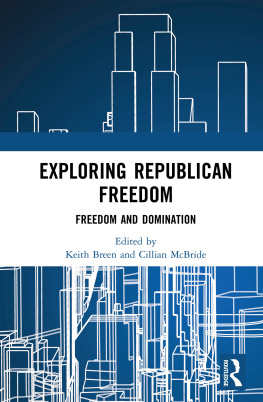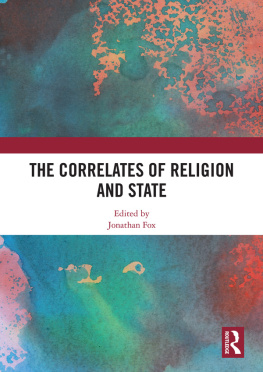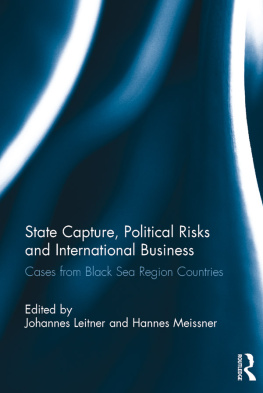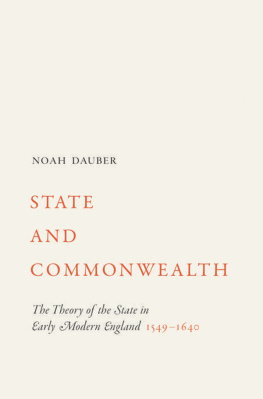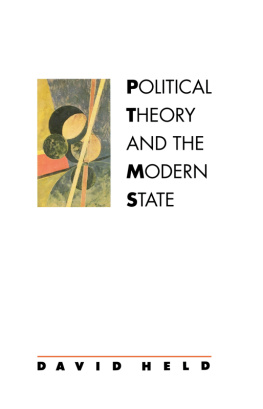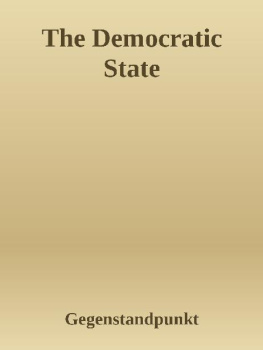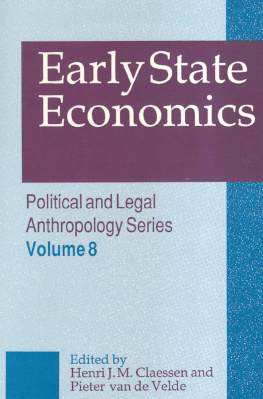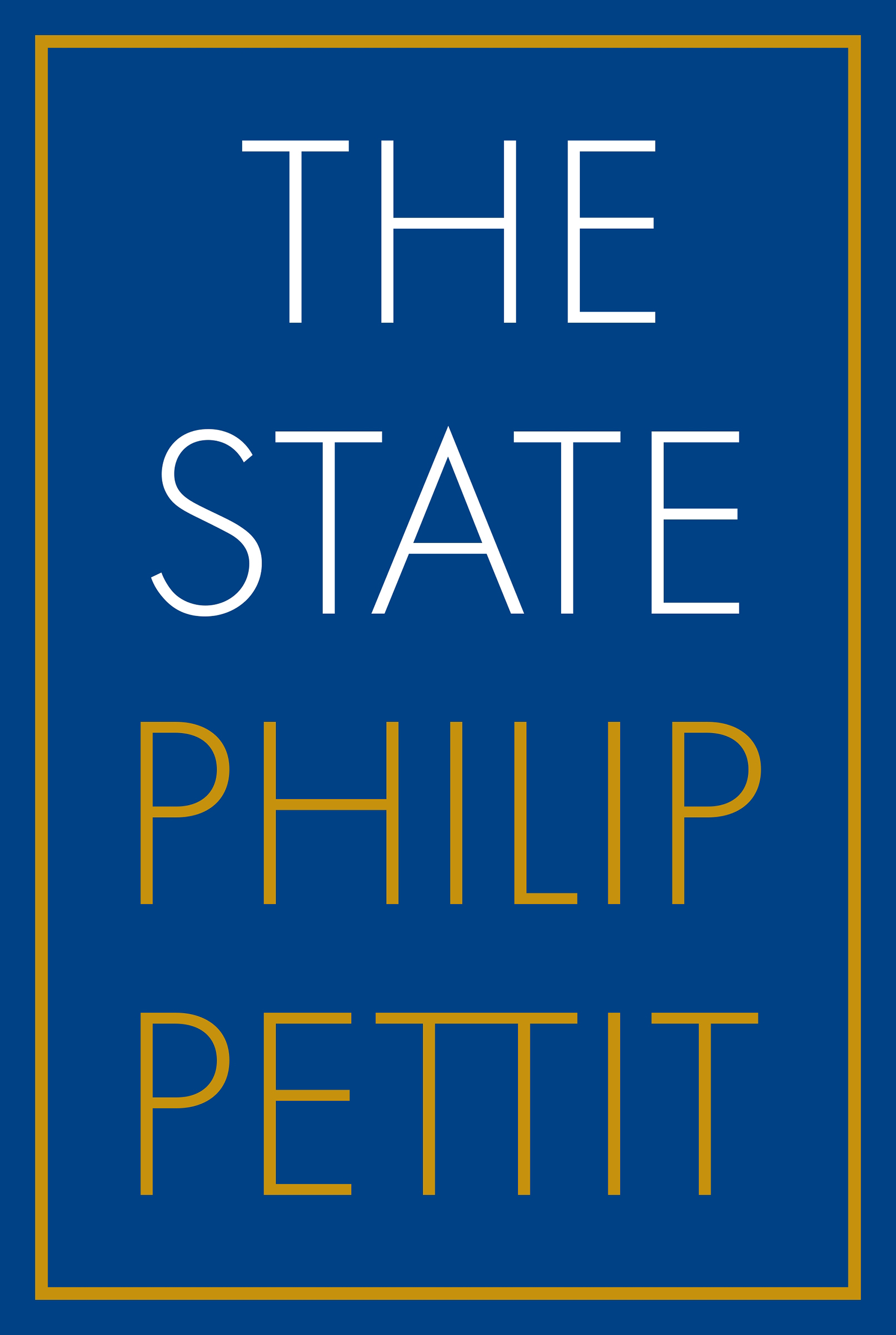Praise for The State
Theorists of politics will welcome this book, in which Philip Pettit uses genealogical methods to explore the implications of his republican ideas for an understanding of polity and state. It is a topic that demands our attention as we watch how states frustrate as well as advance the purposes for which they were constituted. Pettits exploration yields an extraordinarily sophisticated set of insights into the relation between state and legitimacy.
Jeremy Waldron, New York University
Philip Pettit continues to inspire. This groundbreaking book offers original answers to questions any political philosopher needs to ask: What kind of entity is the state? Why are we justified in holding such an entity responsible? What possibilities are feasible in terms of its structure and functioning?
Victoria Costa, College of William & Mary
An extremely impressive and philosophically rich book, in the grand tradition of Hobbes and Locke, and, more recently, Rawls and Raz. There is every reason to believe that this book will become essential reading for anyone working in political philosophy, political theory, legal theory, and related areas today.
Daniel Viehoff, New York University
THE STATE
The State
PHILIP PETTIT
PRINCETON UNIVERSITY PRESS
PRINCETON & OXFORD
Copyright 2023 by Princeton University Press
Princeton University Press is committed to the protection of copyright and the intellectual property our authors entrust to us. Copyright promotes the progress and integrity of knowledge. Thank you for supporting free speech and the global exchange of ideas by purchasing an authorized edition of this book. If you wish to reproduce or distribute any part of it in any form, please obtain permission.
Requests for permission to reproduce material from this work should be sent to
Published by Princeton University Press
41 William Street, Princeton, New Jersey 08540
99 Banbury Road, Oxford OX2 6JX
press.princeton.edu
All Rights Reserved
Library of Congress Cataloging-in-Publication Data
Names: Pettit, Philip, 1945 author.
Title: The state / Philip Pettit.
Description: Princeton : Princeton University Press, 2023. | Includes bibliographical references and index.
Identifiers: LCCN 2022019122 (print) | LCCN 2022019123 (ebook) | ISBN 9780691182209 (hardback) | ISBN 9780691244396 (ebook)
Subjects: LCSH: State, ThePhilosophy. | JusticePhilosophy. | BISAC: POLITICAL SCIENCE / History & Theory | PHILOSOPHY / Ethics & Moral Philosophy
Classification: LCC JC11 .P44 2023 (print) | LCC JC11 (ebook) | DDC 320.1dc23/eng/20220812
LC record available at https: / /lccn.loc.gov/2022019122
LC ebook record available at https: / /lccn.loc.gov/2022019123
Version 1.0
British Library Cataloging-in-Publication Data is available
Editorial: Rob Tempio & Chloe Coy
Production Editorial: Ali Parrington
Jacket Design: Chris Ferrante
Production: Erin Suydam
Publicity: Kate Hensley & Charlotte Coyne
Copyeditor: Joseph Dahm
In memory of Frankie, and of our parents, Chris and Anto
CONTENTS
THE STATE
INTRODUCTION
Motivating the Argument
FOR A CENTURY OR MORE, competing states or polities have claimed and controlled most of the surface of the earth; the only exceptions are international waters and some areas of wilderness. While it has taken millennia for the network of states to extend over the whole planet, and while that network is consistent with continuing shifts in the distribution of power and territory, it looks now like an arrangement that is destined to survive, at least in the absence of massive shocks. It might be disrupted or undone by catastrophic climate change, by a large meteor strike, by a rampant plague, or by a nuclear world war. But short of such a radical shock, the state system is likely to stay around for the foreseeable future.
The status quo is stable for at least three reasons. First, no people can hope to live without a state in their territory; in the absence of a state their land would surely be taken over, perhaps as a protectorate, by one or another rival regime. Second, no regime is so strong that it can hope to drive others to extinction and establish itself in sole possession of the earth. And third, the distrust between peoples is likely to block the formation of a binding, sustainable contract in support of a global government.
The states that constitute this stable network are all coercive, territorial regimes in which an individual ruler or a ruling group exercises power over other residents, asserting the right to act for them in maintaining interstate relations. But otherwise, those regimes vary enormously in how they are organized, how they treat their subjects, and how they behave toward other states.
The inescapability of the worldwide state system means that the future and welfare of our speciesand perhaps that of others toodepends on how states perform. It is only if we can recruit states individually and collectively to the service of human flourishing that we can hope to deal with climate change, pandemic threat, chronic deprivation, and the eruptions of inhumanity that seem to come with our genes. The ideal of justice within peoples and between peoples continues to capture the human imagination. But we can hope to advance along the path to justice only if we can steer the state onto that road.
This is a challenging demand, for the state or polity is an institution with a very mixed record. While it has often been a force for domestic order and welfare, and sometimes international accord, it has just as often enabled the few to lord it over the many, legitimated xenophobia within and without its borders, and given a license to violence and war. Can we really expect it to be able to serve the cause of justice? Is it up to the task?
The Role and Potential of the State
Yes, it is, at least when there is a rough balance of power between rulers and their subjects: between decision makers and decision takers. The rulers must not be so powerful that they can ignore the interests of the ruled. And, a less prominent possibility, they must not be so powerless that there is disorder and strife among those they rule. Barring such developments, so this book argues, there is a role or function we can expect the state to play, and a set of distinctively political desiderata that we can hope it will satisfy. If it plays that roleand only if it plays that roleit will have the potential to advance the cause of justice, whether it actually does so or not.
The state that plays this role will satisfy what we may describe as the ideal of statehood or, to be more exact, the ideal of modern statehood. And depending on how well it meets the demands of the role, it will satisfy the ideal to a lesser or greater degree. While statehood is compatible with justice, as we shall see, it does not make such high demands. The balance of power under which it can be realized does not require an inclusive democracy, for example, or any significant degree of civil liberty or social security. As interpreted here, indeed, that balance does not even preclude stratification among decision takers, so that only the upper echelon hold any power against rulers. Although the ideal of statehood is not high-flown, however, it still makes a range of significant demands on the state and supports the ascription of a variety of important powers.
The theory of the statespecifically, the modern statethat is offered here is realist, then, in two distinct senses. It is historically realist in assuming that the state will endure through the foreseeable future, contrasting on that front with the idealism of traditional anarchists like Peter Kropotkin (1902). It is normatively realist in arguing that although the state need not satisfy a moral ideal like that of justice, it should satisfy a political ideal that reflects the function it will have if there is even an approximate balance of power between rulers and ruled.


